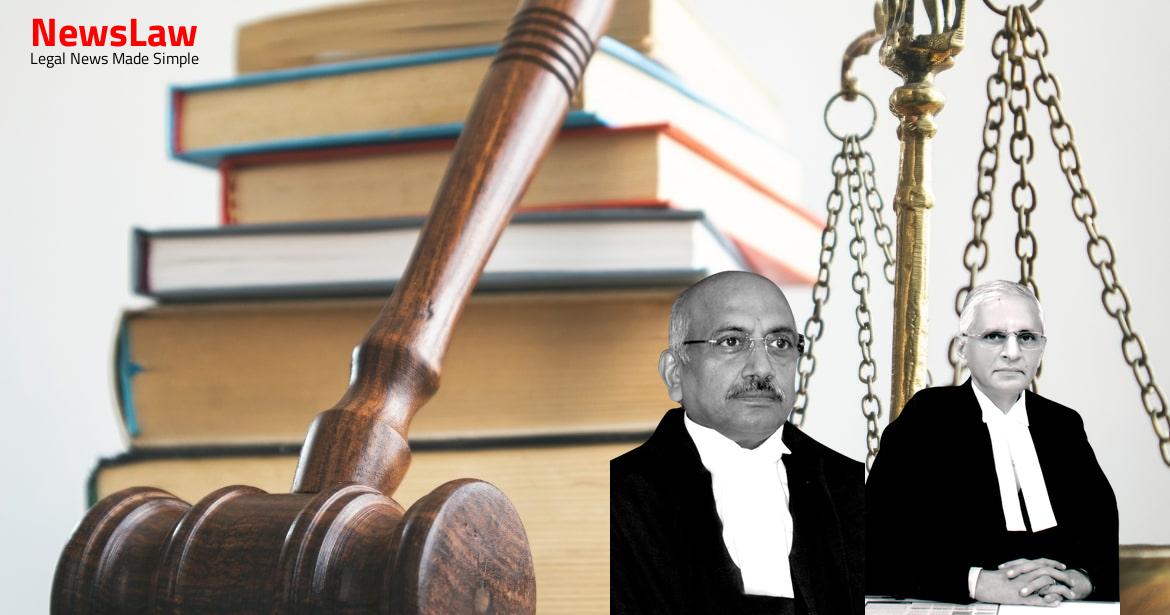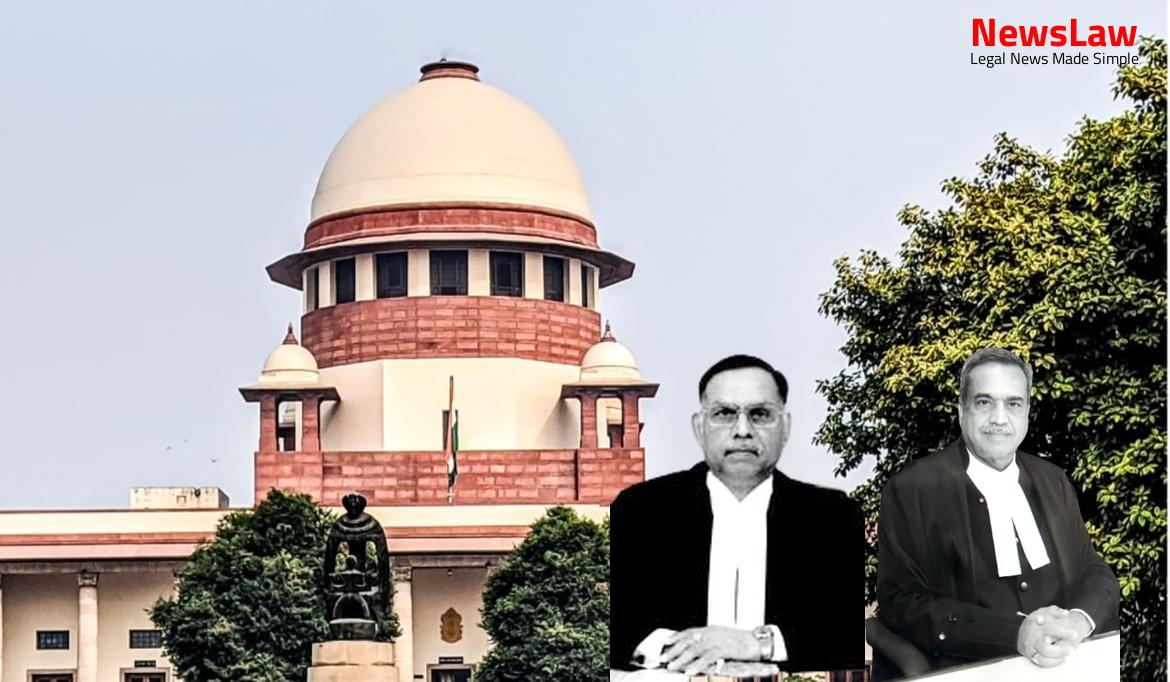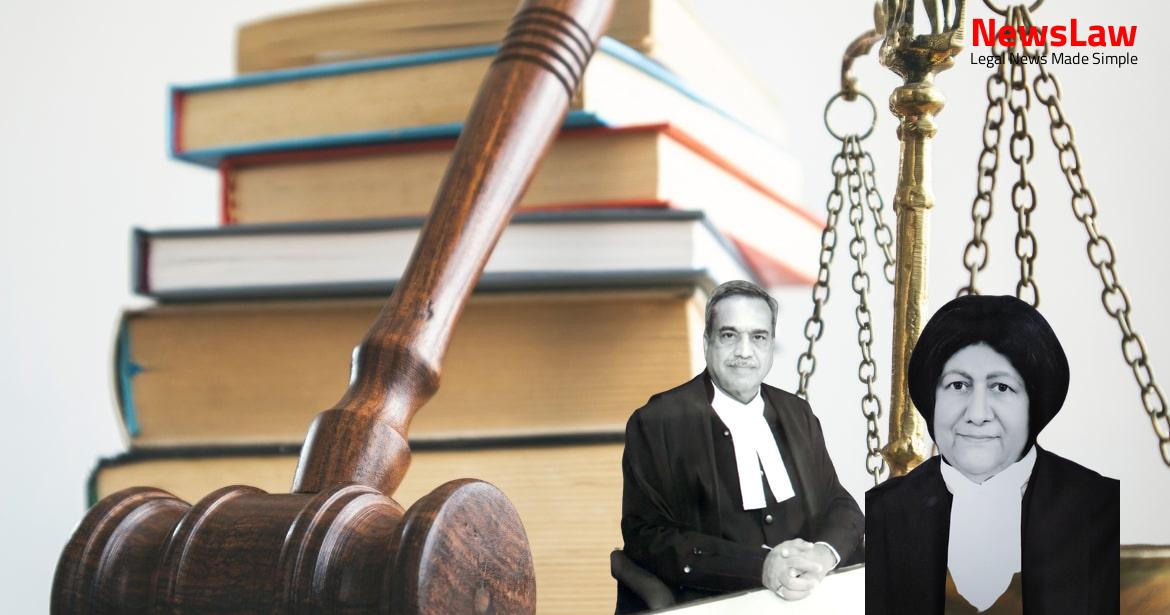Explore the nuanced legal analysis by the court in a recent case concerning perjury allegations in an election context. The focus is on determining intentional falsehood and the grounds required for criminal prosecution. Join us in understanding the complexities of the judicial process in scrutinizing statements and upholding the purity of elections.
Facts
- FAC of the judgement declared the election of the appellant in C.A. No. 4821/2012 (Mr. Nandiesha Reddy) from 151 K.R. Pura Legislative Assembly constituency in Bangalore Urban District void.
- The order was passed on 01.06.2012 by the learned Single Judge of the High Court of Karnataka at Bangalore.
- The learned Judge directed the Registrar General of the High Court to register a complaint against the appellant in C.A. No.6171/2012 (Mr. Ashok Mensinkai).
- The complaint is to be registered before the Competent Court for proceeding in accordance with the law.
- The purpose of the complaint is to initiate proceedings under Section 193 of the Indian Penal Code, 1860.
Also Read: Supreme Court Upholds Rejection of Plaint Under Order VII Rule 11 of CPC: A Critical Analysis
Arguments
- The elections were notified on 16.04.2008, and the results were scheduled to be published on 27.05.2008.
- The appellant was initially named as respondent No.4 but was later removed from the case.
- The appellant was examined by the election petitioner, but she did not cross-examine him even after considering him a hostile witness.
- The term of the Assembly was until May 2013, after which a new election took place.
- The election of the appellant in C.A. No.4821/2012 was declared void, leading to the appeal.
- No opportunity was given to the appellant before directing prosecution under Section 340 of the Criminal Procedure Code.
- The appellant’s consistency in narrating facts during examination-in-chief and cross-examination was highlighted.
- The appellant completed the term of the Assembly for which he was elected, making the appeal in C.A. No.4821/2012 irrelevant.
- The significance of conducting free and fair elections in a democratic process was emphasized.
- The public interest aspect of election petitions and the scrutiny of election conduct records were discussed.
- The direction to prosecute appellant Mr. Ashok Mensinkai in C.A. No.6171/2012 was questioned by the appellant’s counsel.
- The importance of ensuring fair play and equal opportunity in legal procedures was stressed.
- The respondent argues that the appellant’s refusal to accept a nomination denied the respondent the opportunity to contest the elections.
- The respondent points out that the appellant made inconsistent statements during the proceedings to justify his actions.
- The learned Judge concluded that the appellant’s actions were illegal and directed prosecution accordingly.
- The appellant had already accepted 30 nomination papers from 18 different candidates, and receiving one more nomination paper would not have made a difference.
- The respondent contends that the Judge’s order to prosecute the appellant does not require any interference.
Also Read: Validity of Debt and Enforcement of Section 138 NI Act
Analysis
- The learned Judge did not put the appellant on notice regarding the allegation of committing perjury and did not provide him an opportunity to respond.
- The Judge did not come to a conclusion that intentional falsehood was committed by the appellant, hence action was not deemed necessary.
- Observations by the Judge indicated inconsistency in the appellant’s statements, leading to the direction for the Registrar General to file a complaint for perjury.
- The need to maintain the purity of the election process highlighted by the Judge, emphasizing the pivotal role of the Returning Officer.
- The factual matrix did not show deliberate falsehood by the appellant, making it unjustified to initiate criminal prosecution.
- No deliberate falsehood proved in the evidence presented before the court, indicating the lack of grounds for prosecution.
- The appellant’s statements, although inconsistent at times, did not amount to intentional falsehood warranting perjury charges.
- The Judge’s conclusion to prosecute without establishing deliberate falsehood was deemed unsustainable, and the direction to the Registrar General for criminal complaint was unwarranted.
- The aspect of improper rejection of nomination papers becomes insignificant in the context of analyzing the appellant’s alleged inconsistent statements.
- The focus remains on determining if intentional or deliberate falsehood was present in the appellant’s statements during the proceedings.
- Contradictory statements in a judicial proceeding are not always sufficient grounds for prosecution under Sections 199 and 200 of the IPC.
- A prosecution under these sections must demonstrate intentional false statements or fabrication of false evidence for use in judicial proceedings.
- Direction to register complaint against the appellant set aside.
- Success of a candidate who won an election should not be lightly interfered with.
- Appellant should not have been termed unreliable witness based on election success.
- Appellant’s age at the time of recording deposition was 59, now 69.
- Appellant has retired from service 8 years ago.
- Prosecution against the appellant is not expedient or justified.
- Civil Appeal No. 4821/2012 disposed of as infructuous.
- Civil Appeal No. 6171/2012 is allowed.
Also Read: Enlargement on Bail in Illegal Mining Case
Decision
- Parties to bear their own costs.
- Pending applications, if any, shall stand disposed of.
Case Title: N.S. NANDIESHA REDDY Vs. KAVITHA MAHESH (2021 INSC 374)
Case Number: C.A. No.-004821-004821 / 2012



